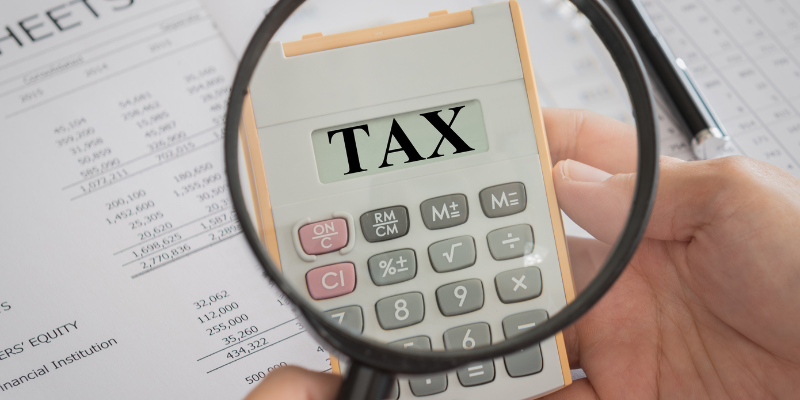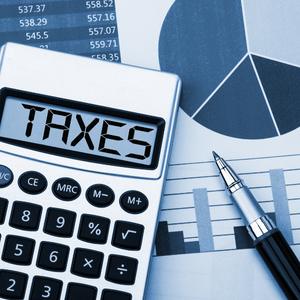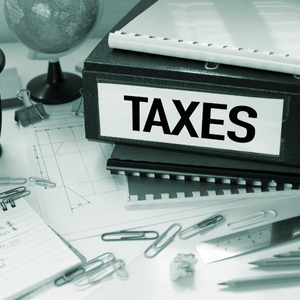
Understanding Capital Gains Tax When Selling Property in Seattle, WA
For homeowners in Seattle, WA, when selling property, it is important to know the implications of capital gains tax. These taxes apply when a home is sold for a profit, and they take into account the purchase price, home improvements, and depreciation.
Seattle homeowners are eligible for federal exclusions when selling their homes. Single filers are eligible for $250,000, while married couples are eligible for $500,000. However, to claim this exclusion, the homeowners should meet the residency requirement, which is having the home for at least two of the five years before the sale.
It is also important to note the differences between short-term and long-term capital gains. In Seattle, it is beneficial for homeowners to track their home improvements and any expenses related to them since items held over a year are taxed at a long-term lower rate.
These Seattle homeowners, along with Sell My House Fast For Cash, take into account state-specific regulations and federal guidelines when selling their property to avoid unwelcome tax bills.
How to Calculate Real Estate Transfer Taxes in Washington State
Understanding the various state and local tax policies is necessary when estimating transfer taxes for real estate in Seattle. Washington imposes the real estate excise tax (REET), which is payable by the seller in any real estate transaction. Existing state taxes add up to
28% and Seattle, in addition, has its own county tax, which is based on a tiered system for the property seller. Thus, it applies a greater excise tax on high-tier properties and a lower tax to lower-tier properties. To determine the total transfer tax due, one must include the state rate together with any local rate. It is worth noting that local rate changes due to specific regulations, exemptions, or other odd cases might be applicable. It is advisable to speak with a real estate tax consultant or use online updates with mandated figures. Knowing possible deductions or credits is equally important, as it allows one to lower the overall tax to be paid in the real estate transaction.
Navigating Federal Taxes on Home Sales for Seattle Homeowners

Federal tax regulations on home sales may be daunting for Seattle homeowners, but having an understanding of some basics can significantly simplify the process. While selling a home, Seattle homeowners must pay attention to the capital gains tax.
Seattle homeowners selling their primary residences may benefit from the capital gains tax exclusion, which the IRS allows. As a significant exclusion on capital gains, qualifying homeowners may exclude a portion of the profit on the home from their taxable income. To be eligible for this exclusion, the home must have been a primary residence for two out of five years before the sale.
Moreover, any significant improvements made to the home can be added to the original cost basis, which decreases taxable gains. Homeowners need to keep in mind that meeting these conditions due to unforeseen circumstances like illness or job relocation may allow for partial exclusion under certain IRS rules.
Seattle homeowners need to know the tax rules in order to stay compliant while selling the property, which also enables them to save money. Understanding partial tax exemption rules will help the sellers maximize their savings.
Exemptions and Deductions for Home Sellers in Washington
If you’re selling a house in Seattle, Washington, it is important to know how some exemptions and deductions affect your real estate taxes. These will be important for your overall real estate tax calculations. For instance, there is an exclusion for capital gains tax for Washington residents. Under this rule, homeowners who have owned and occupied the property for at least two of the last five years may not have to pay tax on the sale appreciation of the property up to $500,00 (or $1 million for married couples filing jointly).
Furthermore, there is no state capital gains tax on the sale of real estate property in Washington, which is an additional saving. In addition to these, the real estate selling costs also include capital gains tax, which can be paid by real estate agents, marketers, attorneys, and certain closing fees.
Homeowners in Seattle would want to be respectfully organized with these costs to benefit maximally from these exemptions and deductions, as it will affect their tax calculations with the IRS and when selling. Washington’s real estate industry is known to be aggressive and competitive; hence, these exemptions would be strategic as they will prepare the house seller to gain the most from the benefits, and strategically selling their house will help maximize the financial outcome.
Impact of Local Regulations on Real Estate Transactions in Seattle
Handling real estate transactions in Seattle is multifaceted, as local laws shape the sale and purchase of properties. There are selling considerations, like the Real Estate Excise Tax (REET) which is pivotal in determining tax obligations, especially when the home being sold is a valuable asset.
Furthermore, Seattle’s zoning laws and building codes which often shift due to varying policies, impact property valuations, in turn, determining a property’s marketability and the pace at which it can be sold. There are also the environmental restrictions which often mandate sellers to disclose compliance alterations to adhere to city standards.
In addition, the inequitable spatial structures of the city caused by the affordable housing initiatives Seattle’s programs often implement are meant to slow down the growth of prices, which can impede the selling price of a property while also adding fees or additional restrictions to the housing within the specified region. In the determined market, sellers often target the emphasized regulations to be in full control while also securing the maximum profit.
Legal Aspects of Selling a Home: Contracts, Disclosures, and Taxes
Seattle, WA, comes with its fair share of opportunities as well as challenges. When it comes to selling a home, one of the foremost challenges is selling the home legally and ensuring that every single step of the process is painlessly executed. This includes the contracts, disclosures, and even the taxes of the sale. As it stands, every single step is done with legal considerations, and every single step is done to comply with the jurisdiction. The steps taken by the selling party to draft contracts are meticulous.
Seattle homeowners and home sellers have the extra responsibility of making mandatory disclosures about the property’s condition to eliminate any future legal responsibilities or disputes. This encompasses specially notifying the buyer of the material defects and any environmental threats that Washington state law prescribes, which is especially important when you sell a house with a code violation, ensuring full transparency and compliance with disclosure requirements.
In addition, the selling is also scarred by legal and statutory responsibilities regarding taxes. One of the saviors to escape the law is that homeowners have the responsibility of knowing the potential capital gains taxes, as well as any exemptions that could mitigate the financial burden.
Seattle home sellers can exercise the use of real estate experts who are familiar with local real estate laws and these professionals can guide sellers towards legally selling the home ensuring a financial uplift from the property sale.
What to Know About Property Appreciation and Tax Implications in Seattle
If you’re looking to sell your house in Seattle, it is important to be aware of how appreciation in value can affect your real estate taxes. Seattle’s economy is booming, and so is its housing market, which typically means that over time, the value of the property increases significantly. This means that the seller is likely to realize substantial capital gains.
IRS regulations provide a capital gains exclusion for eligible homeowners who lived in their qualified primary residences for a minimum of two years in the last five years. Any gains past the allowable exclusion will, however, incur capital gains tax.
It is advisable to document the purchase price of the house, any improvements made, and the expenses incurred during the selling process. Accurate reporting of these figures will allow for a cost basis calculation, which reduces the taxable gain. On the other hand, in Washington State, there is no capital gains tax on the sale of real estate, so there is no need to worry about state taxes; however, federal tax must be paid, so there is a need to be well-informed to ensure that there are no surprise expenses.
A tax specialist who understands the real estate landscape in Seattle can provide you with information that is tailored to your circumstances and will assist you in dealing with the challenges that come with property appreciation and taxation.
Timing Your Home Sale: Tax Benefits and Considerations in Washington State
Proper timing for selling a house in Seattle, Washington, may determine the financial remuneration and tax benefits you derive. Keep in mind, as well, that in Washington State, the capital gains tax exemption is crucial when deciding to sell a primary residence.
As long as a homeowner meets the ownership and residency criteria, they may be able to exclude some capital gains taxes using one of the tax mandates. Selling a house during that frame may offer maximum payout.
Equally important is monitoring any updates to federal and state tax laws. Seasonal market trends for Seattle real estate may play a role in when you sell the house. Traditionally, activity during the spring and summer months is higher, hence better offers, but may lengthen the time needed to reinvest within tax deferring timelines.
Engaging a well-versed realtor or tax consultant in Washington State will ensure you do not miss these important aspects.
How the 1031 Exchange Can Affect Your Property Sale Taxes in Seattle

When selling a home in Seattle, it’s important to know how a 1031 exchange will impact the taxes owed on the sale of a property. A 1031 exchange, or a like-kind exchange, lets you defer capital gains taxes if you reinvest in a similar property.
This tax deferral strategy is important for Seattle’s real estate market since property values are historically high, and a seller will realize significant capital gains. Utilizing a 1031 exchange enables sellers to navigate real estate taxes and maintain the capital they need to purchase additional property or reinvest in other wealth-building assets.
Successfully executing a 1031 exchange requires following a host of IRS rules, such as timelines for identification and closure of the replacement property, which are inflexible. Seattle homeowners who wish to pursue this tax strategy need to discuss it with a real estate and tax advisor who understands the market and local rules to ensure they get the most profitability in exchange for legal compliance.
Any seller of real estate in Seattle wishing to maximize their tax strategies with the sale of property requires understanding Washington’s framework for selling property and how 1031 exchanges work.
Common Mistakes to Avoid When Reporting a Home Sale to the IRS
When selling property in Seattle, WA, it’s important to comply with the IRS correctly, as it may incur expensive penalties. One of the major blunders is not counting the exclusion on capital gains tax, which is available when a homeowner uses the property as a primary residence for two out of five years prior to the sale.
Many sellers tend to overlook providing sufficient proof of home modifications that impact the cost basis, thus increasing the taxable gains. There is also the issue of misreporting closing costs, which may result in tax discrepancies.
Not aligning figures reported to the IRS with Form 1099-S may result in unnecessary audits. It is crucial to know the difference between short—and long-term capital gains, as they are taxed differently and are based on the duration the individual has owned the home.
Seattle homeowners need to understand the tax reporting challenges that can arise, and the value of keeping comprehensive documents and receipts in relation to selling property and reporting it to the IRS.
Reducing Tax Liability: Tips for Selling Your Seattle Home
When selling a home, understanding the intricacies of real estate taxes in Seattle will determine how much you profit. To manage tax expenses, there are certain methods that can be implemented.
Most importantly, make use of capital gains exclusion; if you lived in the Seattle home for 2 out of the last 5 years, you qualify for a profit exclusion if certain IRS criteria are met. Also, the IRS’s maximum allowable deductions will serve to lower taxable income; some expenses, such as property value enhancement improvements, can be deducted.
Lower-income years can be favorable for selling the property for strategic tax benefits, so make sure to keep solid tax records. It is always a good idea to reach out to a legal, real estate, or tax professional who works in the Seattle area to confirm Washington state’s legal terms for saving while remaining compliant.
Seattle homeowners often overlook the interplay of state, federal, and international laws. Knowing how to bookkeep for taxes offers the ability to reduce spending on taxes during the selling of the home. With our service, you can sell your home for cash in Bellevue or nearby cities, ensuring a quick, hassle-free transaction.
Key Differences Between Primary Residence and Investment Property Taxes
It is important to know the difference between primary residence and investment property taxes when selling real estate in Seattle, WA. For the sellers who are homeowners, the IRS extends considerable tax advantages, such as the capital gains exclusion, which permits qualifying sellers with ownership and use requirements to exclude a specified amount of profit from taxation.
Sellers of investment properties, however, do not get any exclusions, and capital gains tax is applied to the entire profit. Furthermore, there is also depreciation recapture on investment properties. Depreciation that has been tax-deducted during the ownership period has to be declared as income when the property is sold.
Moreover, there is no state income tax in Washington as a result of selling real estate, but there are federal taxes that need to be dealt with on the property which need to be understood. Real estate investors often implement a 1031 exchange to defer taxes, where proceeds from the investment are reinvested into a new property.
The effects of taxation from selling a home are greatly influenced by the difference between primary residences and investment properties in Seattle’s ever-changing real estate landscape. With our service, you can sell your home for cash in Seattle or nearby cities, making the process fast, simple, and stress-free.
Effects of Recent Legislation on Home Sale Taxes in Seattle
New laws have changed real estate taxes for homeowners in Seattle, Washington, selling their properties. These changes have been made in line with the housing market’s requirements in the city, and to ensure equity in the tax system residents.
By far, the most critical change is the REET (Real Estate Excise Tax) increase for houses selling for higher than a certain value. This change directly hits the sellers of the houses above certain value. Homes below a certain value will continue to attract little change. However the higher value homes will see a leap in tax burden when sold.
Moreover, the laws seek to finance affordable housing in Seattle as well as meeting the goals of the state in meeting the herring gap of homes and housing affordability. Homeowners should be aware of how these changes affects their net proceeds on the sale of the houses and should seek tax planning services to effectively deal with these changes.
If homeowners can understand these changes, they can know their homes earlier and take advantage of their financial situation when sales listing and other sale methods they will deal with will be used.
The Role of an Accountant When Selling Your House in Seattle
The assistance of an accountant is very important when selling a house in Seattle, especially while dealing with real estate taxes. An accountant is important in helping a homeowner determine whether he or she has an obligation of capital gains tax, which is common in the sale of a property.
They help in determining whether there are any possible deductions that can be obtained, for instance, the exclusion of capital gain tax for primary residence under the Internal Revenue Code, which is very helpful in increasing the taxable gain. An accountant is very helpful in determining and applying the law in cases where there is taxation in the USA and Washington State, so there is legal accuracy and also a financial advantage to the seller.
They also help in the taxation of houses by helping the owner to arrange some financial documents and even offer them the documents which are needed for taxation. The advice that is given by the accountant may be geared towards Seattle; however, in regard to the decisions of the homeowners, the advice is very important in helping them achieve their financial objectives.
Preparing Financially for the Sale of Rental Properties in Seattle

When preparing financially for the sale of rental properties in Seattle, it is crucial to understand the potential tax implications associated with such a transaction. Sellers should be well-informed about capital gains taxes, which are incurred on the profit from selling real estate.
In Seattle, as part of Washington State, there is no state income tax, but federal capital gains tax still applies. Property owners should calculate their cost basis accurately to determine taxable gains and consider any available exemptions or deductions that may reduce their tax liability, such as the 1031 exchange provision that allows deferral of taxes if proceeds are reinvested in similar property.
Understanding depreciation recapture is also important, as this can significantly impact your financial outcomes by taxing previously deducted depreciation at a higher rate. Consulting with a qualified tax advisor familiar with Seattle’s real estate market can provide invaluable guidance and help optimize your financial strategy when selling a rental property, ensuring compliance and maximizing net proceeds post-sale.
What is the 7% Capital Gains Tax in Washington State?
Selling your home in the Seattle, Washington area comes with the consideration of the 7% capital gains tax. This tax affects the proceeds of real estate and other investments.
Washington State capital gains tax assists in paying for critical state functions like education and construction. Homeowners subject to this tax must also account for any existing federal capital gains taxes.
Determining your tax liability requires the calculation of net proceeds from the sale along with applicable exemptions or deductions. For primary residences, exclusions can be claimed under federal law if certain criteria are satisfied.
These federal exclusions may be applicable for other states, but do not remove the Washington state 7% capital gains tax. Homeowners in Seattle would benefit from seeking advice from a tax expert with both federal and Washington state tax law to navigate the sale of their home and maximize their gains.
Wondering what taxes you have to pay when you sell your house? Understanding your potential tax obligations, like capital gains tax, transfer tax, and other closing-related costs, is essential before listing your property. Sell My House Fast For Cash can help you navigate these financial considerations while offering a fair cash price for your home. We handle all the details, cover most selling expenses, and make the process seamless so you can sell quickly, avoid costly repairs, and keep more of your proceeds. Contact us at (866) 824-3222 for a no-obligation offer and expert guidance on your sale. Get started today!
Helpful Seattle Blog Articles
- Cheapest Housing Markets Outside Seattle, WA
- Real Estate Taxes When Selling Your Home In Seattle, WA
- How to Sell a Home in Seattle, WA with Foundation Issues?
- How Long Can Seller Stay in House After Closing in Seattle, WA
- How to Sell a House Without a Realtor in Seattle, WA?
- How to Sell an Inherited House in Seattle, WA?

| TAX PAYMENTS | INTEREST | AFFIDAVIT | PROPERTY TAXED | PAYOR | PAYMENTS |
| REAL PROPERTY | TRANSACTION FEES | STOCK | DEED | DEEDED | INFORMATION |
| INCOME TAXED | PERSONAL INCOME TAX | INCOME TAXES | ASSETS | TAX RATE | MONEY |
| REFUND | INHERITANCE TAXES | ENTITY | OWNERSHIP INTEREST | TAX ATTORNEY | TAX LAWYER |
| TIMBER | INDEBTEDNESS | WEALTH | TRUSTS | TAXPAYER | TAX BREAKS |
| COUNTY ASSESSOR | RETIREMENT | RETIREMENT SAVINGS | RETIREMENT BENEFITS | PENSIONS | MORTGAGE |
| LAWYER | JURISDICTIONS | CASH | BLOGGER | BLOG | |
| TAX RETURN | APPRAISAL | PROPERTIES VALUED | NWMLS | MARKET VALUE | HEIRS |
| INHERITANCE | DISABILITIES | DISABILITY | DEPARTMENT | CORPORATION | CONSUMER |
| WASHINGTON STATE SUPREME COURT | TACOMA | STATE SUPREME COURT | STANDARD DEDUCTION | PIERCE COUNTY | DEPARTMENT OF REVENUE |
| LOAN | FEDERAL INCOME TAX | INVESTMENT ADVICE | INVESTMENT ADVISOR | BUSINESS | TAX ON THE |
| DEPARTMENT OF REVENUE | LONGTERM CAPITAL GAINS | A REAL ESTATE | WASHINGTON STATE DEPARTMENT OF | TAX ON THE SALE | WHERE THE PROPERTY IS |
| THE CAPITAL GAINS TAX | ESTATE EXCISE TAX REET | HOME IN WASHINGTON STATE | IN WASHINGTON STATE YOU |
